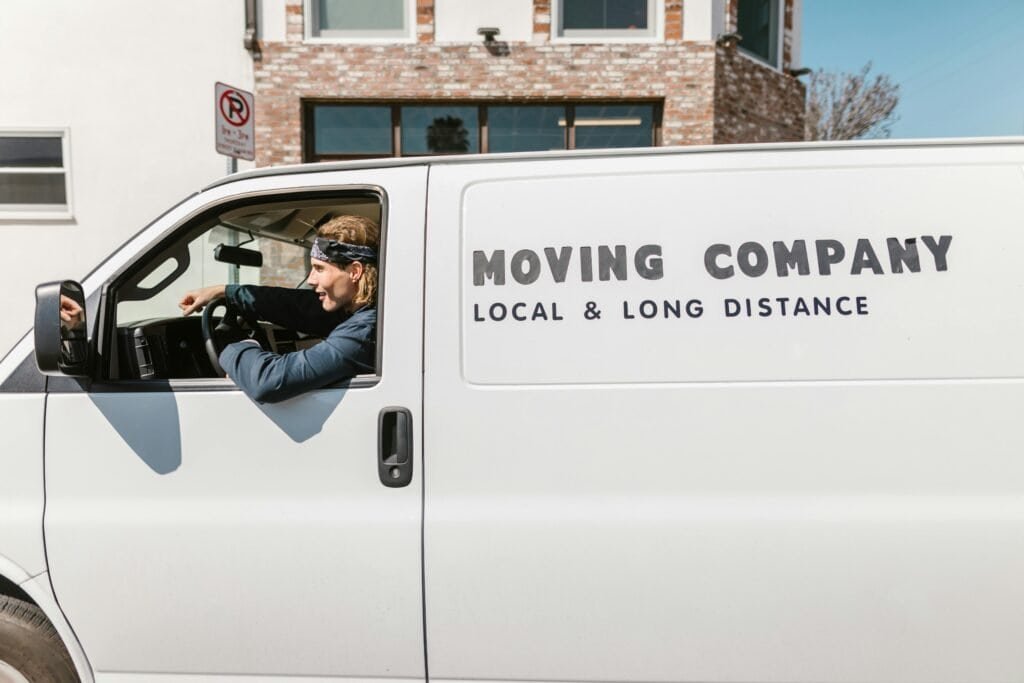What Permits Do I Need to Start a Moving Company?
A Closer Look At Permits and Licenses For a Moving Company

If you’re looking to start a moving company, you’re probably wondering, “What permits do I need to start a moving company?” This answer depends on how you plan to operate your business. Whether you aim to move locally or across state lines, acquiring the correct permits and licenses is key.
This process includes registering with relevant state and local governments, meeting insurance requirements, and adhering to safety regulations. We’ll cover all the licenses and permits you’ll need to successfully start your moving business. Join our free guide below for an extended step-by-step moving company startup strategy.
Do You Need a License to Start a Moving Company?
The short answer to your question is yes, you do need a license to start a moving company. Obtaining specific licenses and permits ensures compliance with federal, state, and local regulations. The purpose of a license is to uphold safety regulations, insurance requirements, and professional standards within the moving industry.
Licenses serve as a guarantee to potential customers that your moving business operates within the legal framework. This gives your customers peace of mind that their belongings are handled safely and responsibly. However, the question is, “What licenses and permits do you need?”
Requirements for State and General Business Operations
Before diving into the licensing process, there are a few steps every aspiring moving company owner must undertake. To obtain the relevant licenses for your moving company, you’ll first need to meet the general business requirements for your state.
Initially, you must register your business with the Secretary of State. Following registration, you’ll need to obtain a federal tax ID number, or Employer Identification Number (EIN), from the IRS.
Additionally, providing proof of insurance is a part of the application process to secure the necessary licenses for your moving company. Taking these steps lays the groundwork for a successful moving company.
Registration with the Secretary of State
Registering your moving company with the Secretary of State is a fundamental step in establishing your business as a legal entity. This involves selecting an appropriate business structure, such as a limited liability company (LLC).
This registration is essential for obtaining moving permits, business insurance, and other legal requirements. It’s the first step towards building a successful moving company that operates within the legal framework of the moving industry.
Obtain a Federal Tax ID Number
The next step is getting a Federal Tax ID Number, also known as an Employer Identification Number (EIN). An EIN acts similar to a social security number as both serve for tax reporting purposes. The difference is that an SSN is for a person, and an EIN is for a business.
To secure this number, owners can apply through the IRS online, by fax, or by mail. This number is required to apply for state and federal licenses. Additionally, the EIN allows you to open a business bank account, handle employee payroll, meet federal tax obligations, and more.
Moving Company Insurance
Securing the right insurance is required for legal compliance and protecting your business and customers. The necessary level of insurance coverage ranges from $750,000 to $5,000,000 in liability and cargo insurance, depending on the size and scope of your operations.
This insurance safeguards against potential damages or losses while transporting household goods. Additionally, while not mandated, general liability insurance is strongly recommended. It offers an extra layer of protection against accidents and injuries.
This level of security provides a comprehensive safety net, improves the quality of services, and establishes trust within the moving industry.
Obtain a USDOT Number

Moving companies aiming to operate legally across state lines must obtain a USDOT Number from the United States Department of Transportation. This unique identifier is mandated for all commercial vehicles transporting passengers or hauling cargo in interstate commerce.
To secure your USDOT Number, visit the Unified Registration System on the FMCSA (Federal Motor Carrier Safety Administration) or US DOT website. This number ensures compliance with federal safety regulations and is used to collect your company’s safety information during audits, inspections, and crash investigations.
Acquiring a USDOT Number shows your commitment to safety and regulatory compliance within the moving industry.
FMCSA Application Process
Once you’ve obtained your US DOT number and fulfilled the insurance requirements, you can navigate the FMCSA (Federal Motor Carrier Safety Administration) application process. To register with the FMCSA, you’ll need to go to their website and submit the following:
- Insurance coverage information
- US DOT number
- Moving truck registration
- Specific requirements by state and local governments
The FMCSA oversees commercial vehicle safety, enforcing rules and regulations related to the operation of commercial motor vehicles. Applying to this agency establishes your business to a professional standard.
Enroll in the New Entrant Safety Assurance Program
Join the New Entrant Safety Assurance Program. This involves an 18-month probationary period that mandates new entrants adhere to strict safety and operational standards.
Key requirements include safety audits, maintaining safe transport records, and ensuring all documentation and vehicle inspections are completed without delay.
To sign up, go to the FMCSA website and complete the Combined Motor Carrier Identification Report, Form MCS-150. This process signifies compliance for safe and legal operations.
Driver Screening Program
Not having a driver screening program means an automatic inspection failure for moving companies. Such a program is crucial and must incorporate random drug screening and thorough checks on drivers.
This includes verifying they possess the necessary driving authority and ensuring their licenses are current, not expired, revoked, or suspended. After successfully finishing the New Entrant Safety Assurance Program, your US DOT registration will be permanent.
Required Licenses for Drivers
Commercial Driver’s Licenses (CDL) are mandatory for those operating large trucks and trailers, specifically for vehicles over 26,000 pounds and trailers exceeding 10,000 pounds. This certification is essential to comply with the Department of Transportation inspections and avoid potential safety rating downgrades.
Conversely, a for-hire endorsement may suffice for those navigating smaller vehicles under 26,000 pounds. This will allow them to transport property without the need for a CDL.
Which Authorities Oversee Moving Companies?
In the moving industry, different authorities oversee the operations of moving companies based on their service scope. Local moving companies are generally regulated by state and local governments, which means their permits can vary significantly from one state to another.
Interstate moving companies, which operate across state lines, fall under the Federal Motor Carrier Safety Administration (FMCSA) jurisdiction. For international moving companies, oversight extends to the Federal Maritime Commission.
Each level of authority aims to improve the safety and operational standards within the moving industry.
